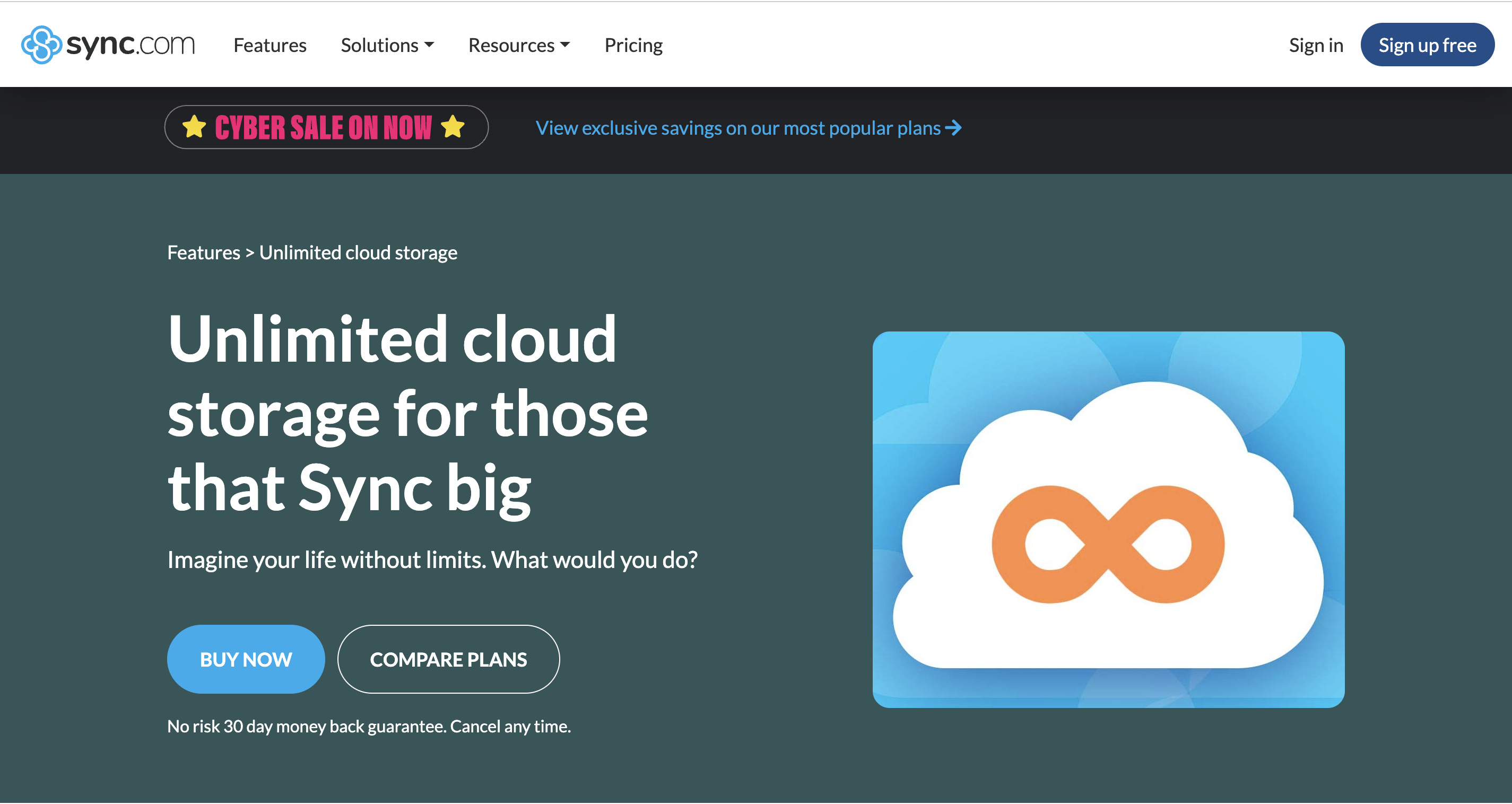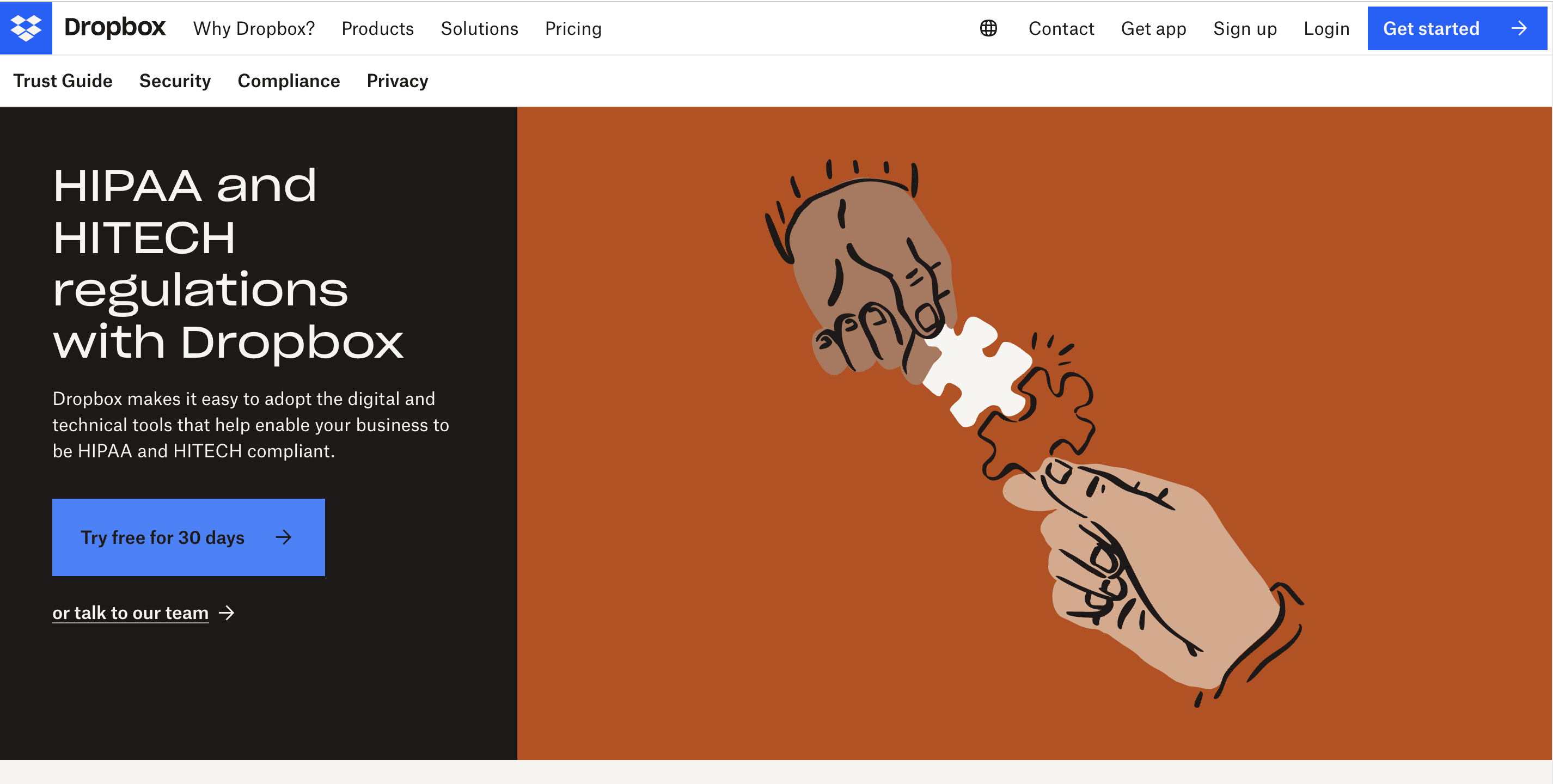When it comes to handling sensitive data in healthcare, adhering to compliance regulations such as HIPAA is crucial. This is significant for small businesses that might need more resources for large-scale security measures. Cloud storage services can offer a viable solution, but choosing the right one can be challenging.
This article delves into five top-rated HIPAA-compliant cloud storage options for small businesses. These options are tailored for their robust security, user-friendly interfaces, and affordability. These make them ideal for small businesses seeking to navigate the complexities of HIPAA compliance.
Leading Options for HIPAA-Compliant Cloud Storage for Small Businesses
Microsoft OneDrive
Microsoft OneDrive offers a cloud storage solution that safeguards your data with robust security measures. For small businesses already using Microsoft’s suite of productivity tools, OneDrive provides a seamless, integrated workflow, reducing the need for additional software purchases.
Key features:
- 256-bit AES encryption
- Multi-Factor Authentication (MFA)
- Virus scanning on download
- Suspicious activity monitoring
- Personal Vault
Sync.com

Sync.com, a cloud storage service hailing from Canada, is particularly appealing for small businesses due to its strong emphasis on user privacy and security. Its end-to-end encryption ensures that only you have access to your data. Sync.com’s adherence to Canada’s strict privacy laws adds a layer of protection, making it an excellent choice for small businesses mindful of data security.
Key features:
- End-to-end encryption
- Zero-knowledge privacy
- Two-factor authentication (2FA)
- Remote wipe features
- Version history and recovery
Microsoft OneDrive
Microsoft OneDrive offers a cloud storage solution that safeguards your data with robust security measures. For small businesses already using Microsoft’s suite of productivity tools, OneDrive provides a seamless, integrated workflow, reducing the need for additional software purchases.
Key features:
- 256-bit AES encryption
- Multi-Factor Authentication (MFA)
- Virus scanning on download
- Suspicious activity monitoring
- Personal Vault
Box
Box is not just for large enterprises; it also caters to the needs of small businesses with its HIPAA-compliant cloud storage. Known for its solid security infrastructure, Box protects your data with advanced features, providing peace of mind for small businesses dealing with sensitive information.
Key features:
- Data encryption
- Advanced threat detection
- Detailed access and control capabilities
- Secure collaboration
Google Drive
Google Drive, part of Google’s ecosystem, is a user-friendly cloud storage service that integrates seamlessly with other Google platforms. Its ease of use and ability to facilitate online file collaboration make it ideal for small businesses. As a HIPAA-compliant service, Google Drive is a reliable choice for small companies handling sensitive data, offering both security and affordability.
Key features:
- Data encryption
- Two-step verification
- Advanced threat detection
- Safe sharing
- Malware and spam protection
Dropbox Business

Dropbox Business is an all-encompassing cloud storage solution that bolsters team collaboration and productivity — vital components for rapidly growing small businesses. Its features enable secure and effective file sharing and management, making it a cost-effective solution for small teams.
Key features:
- 256-bit AES and SSL/TLS encryption
- Two-step verification
- Remote device wipe
- File recovery and version history
Key Features of a HIPAA-Compliant Cloud Storage
A HIPAA-compliant cloud storage software must have several key features to ensure the safe and secure handling of Protected Health Information (PHI):
Data encryption
All stored data should be encrypted at rest and in transit. Data should be unreadable without a decryption key, protecting it from unauthorized access.
Access controls
Access controls, including unique user identifiers, emergency access procedures, automatic logoff, and encryption and decryption policies, ensure that only authorized individuals can access PHI.
Audit controls
The platform should record and examine activity in systems that contain or utilize PHI. This assists in identifying any breaches or potential security risks.
Integrity controls
Data backup, disaster recovery, and other measures help maintain data integrity to ensure that PHI isn’t improperly altered or destroyed.
Transmission security
Measures must be in place to protect against unauthorized access to PHI transmitted over an electronic network.
Business Associate Agreement (BAA)
HIPAA regulations require a BAA between the healthcare organization and the cloud storage provider. This agreement confirms that the provider understands their obligation to protect PHI and will do so according to HIPAA standards.
Regular risk assessments
Regular assessments help identify and address vulnerabilities in security, ensuring continuous protection of PHI.
Why HIPAA Compliance Matters for Small Businesses
Cloud storage and HIPAA compliance are crucial for small businesses, particularly those that handle or interact with PHI. Non-compliance can lead to significant financial penalties, legal ramifications, and damage to a company’s reputation.
Avoid costly penalties
Non-compliance with HIPAA can result in hefty fines. The penalties range from $100 to $50,000 per violation, with a maximum penalty of $1.5 million per year for each violation.
Build trust with clients
HIPAA compliance ensures the privacy and security of health information, which helps build trust with clients and patients. This trust can be a significant competitive advantage in the marketplace.
Ensure legal protection
Following HIPAA guidelines reduces the risk of legal action related to the mishandling of PHI.
Establish business continuity
A data breach can disrupt operations, resulting in downtime that can be costly for small businesses. HIPAA compliance includes implementing regular data backups, disaster recovery plans, and emergency mode operation plans. These ensure business continuity during a breach.
Enhance data management
HIPAA compliance often leads to better data management practices, as it requires regular audits, updates, and staff training.
Small businesses, particularly healthcare providers and business associates, must understand their obligations under HIPAA to protect the sensitive health information they handle.
Implement a HIPAA-Compliant Cloud Storage For Your Small Business
Implementing a HIPAA-compliant cloud storage solution is an essential step for small businesses dealing with health-related data. With providers like Sync.com, Dropbox Business, Microsoft OneDrive, Box, and Google Drive, businesses can ensure the safety and confidentiality of sensitive information.
These solutions not only provide secure storage but also facilitate secure collaboration and file sharing, enhancing productivity while maintaining compliance. By choosing a cloud storage provider that aligns with your business needs and complies with HIPAA regulations, you can effectively safeguard your data and build trust with your clients.





